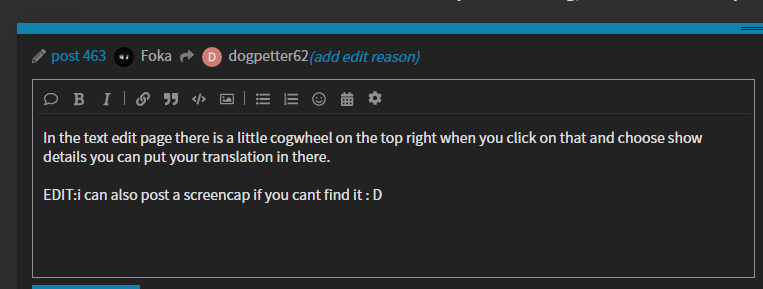This should be 走らない but other than that perfect
バスで出勤するともなくしたら、勤務先の前の停留場を超えてしまいました。
When I was absentmindly commuting to work, I missed the bus stop in front of my workplace.
彼は努力して勉強しただけに今回の試験の点数が高い。
As expected from the effort he spent studying, he has a high mark on his test.
武道家だけに、ケンカに強い。
As expect from a martial artist, he is good in a fight.
カシャー教授は日本語を話せる傍ら、いくつの言語も話せます。
Dr. Kazsa can speak multiple languages in addition to Japanese.
午前3時ですが、まだ寝付いていません。昨日スーパーマーケットに行った。たくさん買わなかったと思いますが、高かったです。
((Google Translate tells me that says “I’m still asleep” … tell me it’s wrong. I don’t understand lmao))
@yononanase I think this is a bit closer to what you’re trying to say.
夜中3時なのに、まだ寝ていません。前にスーパーに行ったんですが、少ししか買いませんでしたが、結構高かったです。
文プロの皆さん、こんにちは!今日俺はテレワークしてるので、日本語の勉強をいっぱいしていますよ。一緒(一生)に上手になりましょう。よろしくね!
Questions:
- Can you say "日本語勉強” or does it need the の?
- Does my 一緒・一生 pun work, or is に the wrong particle for 一生? (Yes, I know one has an う at the end, so it’s not a perfect pun regardless)
- Any other fixes?

I would say it looks more natural with の but I don’t think it would necessarily be incorrect without.
For anything pun-related or related to playing on words, I would always ask a native speaker. I got it, but Japanese people have totally different ways of thinking so they might not. I often show my Japanese friends this picture and they don’t get it, but foreign Japanese learners think it’s hilarious:
This is fine but I feel like it would come across more natural if you started your sentence with 俺, so it would read 俺は今日、- it would be good if someone could confirm this for me though.
こんなレベルになっても「僕は本当にペラペラになれるのだろうか」とよく考えています。
Furigana
こんなにレベルなっても「僕は本当にペラペラになれるのだろうか」とよく考えています。
English
Even though I've reached this level, I still often think about whether I can really become fluent.
僕たちの愛が美しい花みたいに満開だった…
ずっと一緒に時間の終わりまでいたいんだった…
だか、君が亡くなっちゃった…
雪の中に置き忘れた花みたいに…
なぜそんな悲劇は起こらなればならないんだ?
Furigana
僕たちの愛が美しい花みたいに満開だった…
ずっと一緒に時間の終わりまでいたいんだった…
だか、君が亡くなっちゃった…
雪の中に置き忘れた花みたいに…
なぜそんな悲劇は起こらなればならないんだ?
English
Our love was in bloom like a beautiful flower...
I wanted to be together till the end of time...
But you died...
Like a flower left, forgotten in the snow
Why must such tragedies occur?
I got bored while making a flashcard for 満開 and ended up writing this.
Hello, first time bunpro user here and Ill start by writing my first sentence : D
今日私は文プロを試みた。
Summary
Today I tried bunpro.
And im going in for one more 
私は家で日本語を勉強します。
英語
I am learning Japanese at my house.
Hi!
This is totally fine but most people would put the 私は first, so to look a bit more natural I would start with 私は今日…
試みる is a good word but I would say to maybe put something like してみた in this situation. Please see this grammar point.
勉強します is plain form, which usually indicates future tense, so your sentence reads “I will study Japanese at my house.”
If you want to say it in the present tense, as your English translation suggests, you should put 勉強しています to indicate something you are ~ing. See this point.
Hope that helps! Keep 'em coming!
Thank you very much : D
And I’m keeping them coming!
私はピザを食べるのが好きだ。
英語
I like eating pizza.
Perfect. You can also have it without the だ, which will also be casual, or put です on the end to make it polite.
And another one, lets see how long i can keep this streak going.
私は毎日日本語を勉強しましてと毎日9時間におきまして。
英語
Everyday i learn japanese and everyday i get up at 9 o’clock.
In this sentence, your て connects to something else, so you shouldn’t finish your sentence with a て. Also, it’s unusual (but not unheard of) to use まして. Usually, you would use the standard plain form in the middle of a sentence and finish on ます. Can someone please come in here and explain in what situation it would be appropriate to use まして? Also, you don’t need 毎日 twice.
Finally, not a grammar error, but I think it would look more natural to say the time you woke up first, since that’s likely to be the first thing you do, before studying Japanese.
So if I were to rewrite your sentence, it would look something like this:
私は毎日9時に起きて日本語を勉強します。
PS one more tiny thing - your translation says ‘learn’ but your Japanese says 勉強 (study).
It’s obviously a very small nuance but:
Learn = 学(まな)ぶ
Study = 勉強(べんきょう)する
昨日私は文を書くのは忘れた。
英語
Yesterday I forgot to write a sentence.
今日は日本語の勉強た
Sorry this is my first post, how do I make the drop-down hidden text, so I can translate.


